Alexis Karolin is the spring 2022 Mahn Center intern. She graduates with a Bachelor of Arts in History from the Honors Tutorial College along with a certificate in Asian Studies and a certificate in Law, Justice, and Culture this spring. Here she reflects on her experiences learning about archives, how the internship took two years to come to fruition, and how it contributed to her personal and professional growth.
Initial Interests in Archival Work and Asian American Studies
In the spring of 2020, I was an Ohio University sophomore studying abroad at Swansea University in Wales when I received an email from University Archivist Bill Kimok informing me that I had been unanimously selected as the next intern for the Robert E. and Jean R. Mahn Center for Archives and Special Collections at Ohio University. I originally applied to the internship position in hopes of gaining an experiential learning opportunity for my history degree, exploring an interest in archival studies, and developing skills in archival work for my upcoming senior Honors Tutorial College thesis. I was ecstatic thinking about how exciting the fall semester would be once I returned to Athens from Wales.
My plans for the remainder of the year were, of course, significantly impacted by the COVID-19 pandemic. First, rather than fulfilling my dream of backpacking through western Europe, I spent the summer in Wales as a virtual research apprentice with Dr. Roger Aden in the Communication Studies department. We examined primary sources from three collections on Japanese American World War II internment and together authored three journal articles.1 Although it was not part of my original plan, I am incredibly thankful for the research opportunity because it allowed me to begin exploring Asian American issues in the U.S.
My internship in the fall of 2020 was also significantly impacted. My advisors Bill Kimok, Miriam Intrator, Laura Smith, and Dr. Michele Clouse quickly realized that the internship would have to be virtual in the interest of public health and safety. I decided to defer my internship for the next three semesters – to spring 2022. I knew I wanted an experiential learning opportunity, and at the time, I struggled to see how a virtual internship could help me grow as much as I wanted. I remember rationalizing, “I want to save the internship for later so I can physically touch the primary sources and smell the old, historical books!”
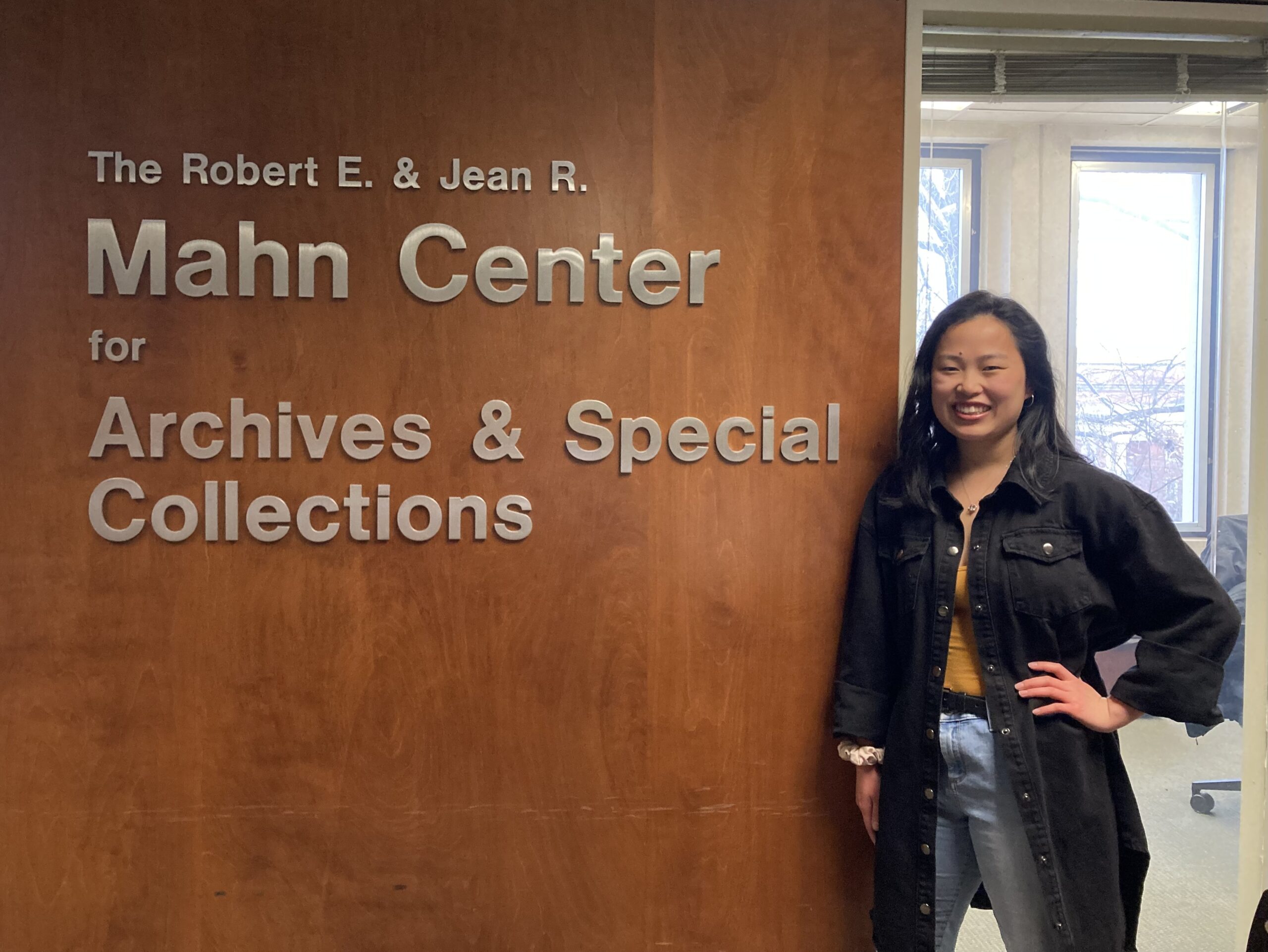
Responding to Anti-Asian Hate and Developing the Archival Project
In the spring of 2021, I enrolled in a tutorial with Dr. Katherine Jellison to study the history of Asian American women in the U.S. I chose this topic because I want to expand on my research with Dr. Aden and my interest in women’s history. During the tutorial we began to see an increase in reported hate crimes against the Asian American and Pacific Islander populations in the U.S. because of the racialization of the COVID-19 pandemic. We were both struck by the relevance of our tutorial topic. Moreover, we were intrigued by news articles that covered the reports of the hate crimes but struggled to fully explain why there was a ‘surge’ in anti-Asian racism. We felt the best way to understand contemporary trends was by looking at the history of the AAPI experience in the U.S. My identity as a Chinese American adoptee and my growing interest in Asian American women’s history led me to develop my thesis which seeks to contextualize the increase in reported hate crimes against the AAPI community during the pandemic within the larger framework of Asian American immigration to the U.S. in the last 150 years.
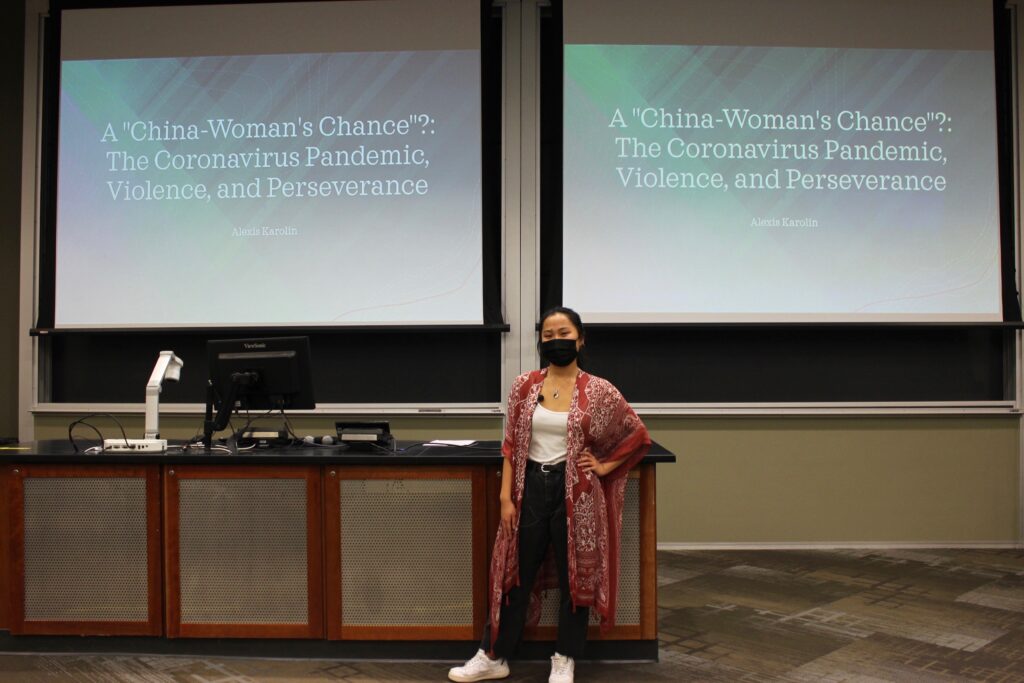
In the fall of 2021, I reached out to Bill, Miriam, and Laura to discuss the internship project for the spring of 2022. I knew I wanted to do a project that related to my thesis research. Moreover, in the summer of 2021, three Asian American and Pacific Islander organizations were founded in response to the hate crimes to create a safe space of solidarity: Athens Asian American Alliance (community organization), AAPI-LEAD (faculty and staff), Asian American/Pacific Islander Student Union. I knew that 5-10 years from now, scholars would be researching people’s experiences during the pandemic. The AAPI experience was vastly different from most white Americans in the U.S. I felt this was a perfect opportunity to make sure the AAPI experience would be centered in the history of the pandemic, document history as it was being made in Athens, and to explore the local AAPI history.
Dr. Jellison helped me prepare a project presentation in which I proposed creating an archival collection on the founding of the three organizations, contributing to AAAA’s Oral History Project with the Southeast Ohio History Center, and building an exhibit on Ohio University’s campus at the end of the semester to highlight AAPI Heritage Month in May. Miriam, Bill, and Laura were incredibly enthusiastic about my ideas. After a couple weeks they emailed me and explained that my vision was fantastic, but too large to be accomplished in one semester. We decided to narrow the project down to an archival collection that documents the founding of the three AAPI organizations and houses oral interviews with the founders of each organization.
The Importance of Archives
I started my internship with a number of archival readings provided by Bill, Miriam, and Laura. I learned how archivists draft collection policies, secure funding and institutional support, network and collect donations, facilitate the signing of donation forms, organize all the materials in the archive by provenance, and create a finding aid, which is like a table of contents that documents and describes all the materials for patrons. I also learned the differences between preserving digital and physical materials, the variety of materials an archivist can collect, and the many uses of archival materials—research, exhibits, opportunities for anyone to learn about different communities and histories.
One aspect of my readings that stood out to me was the importance of collections that center historically minoritized groups and the inherently political nature of archival collections. I learned that archives could provide spaces for minoritized groups to assert their history, document and preserve their experiences, and challenge symbolic annihilation. This resonated with me because it applied to my project. The collection amplifies the voices of AAPI students, faculty, and community members who are often forgotten in mainstream public history and culture. Moreover, the readings helped me recognize how archives create spaces of belonging on Ohio University’s campus and in Athens. At the beginning of this project, I remember Miriam had shared that there were not many collections in Alden Library about AAPI experiences. Through this project, I worked to highlight the diversity on Ohio University’s campus and show students, Asian and non-Asian, that AAPI individuals have greatly contributed to the history of Athens as active participants, particularly during the Covid-19 pandemic.
Applying the Skills and Becoming an Archivist
In February of 2022, Greta Suiter joined our team and was instrumental in helping me launch the project and in applying everything I had learned from my readings. I drafted a collection policy, which outlined the Mahn Center’s mission to identify, better describe, and bring greater attention to materials already in the collections related especially to people of color, LGBTQIA+, and women’s lives, experiences, perspectives, and contributions and to prioritize acquisition of similar materials. I highlighted how this mission aligned with my current project to create a digital collection, which would highlight the AAPI experience.
From my readings, I anticipated that many AAPIs might be hesitant to donate materials to Alden Library out of fear of their history being misrepresented. So, I developed a project presentation that explained the Mahn Center’s mission and the project’s mission, the materials we hoped to collect, the oral interview process, and the benefits of donating to a collection in an accredited research institution. Greta came to each meeting with the respective AAPI organizations, helping to answer questions and offering support as a guide on the side. We were overwhelmed by the initial enthusiasm we received from each organization. In addition, because of my identity as an AAPI woman, my prior research experience on AAPI history and archival processes, and my role as a community organizer in several of the organizations, each organization granted me direct access to their files to select which documents would help tell the full history of their founding.
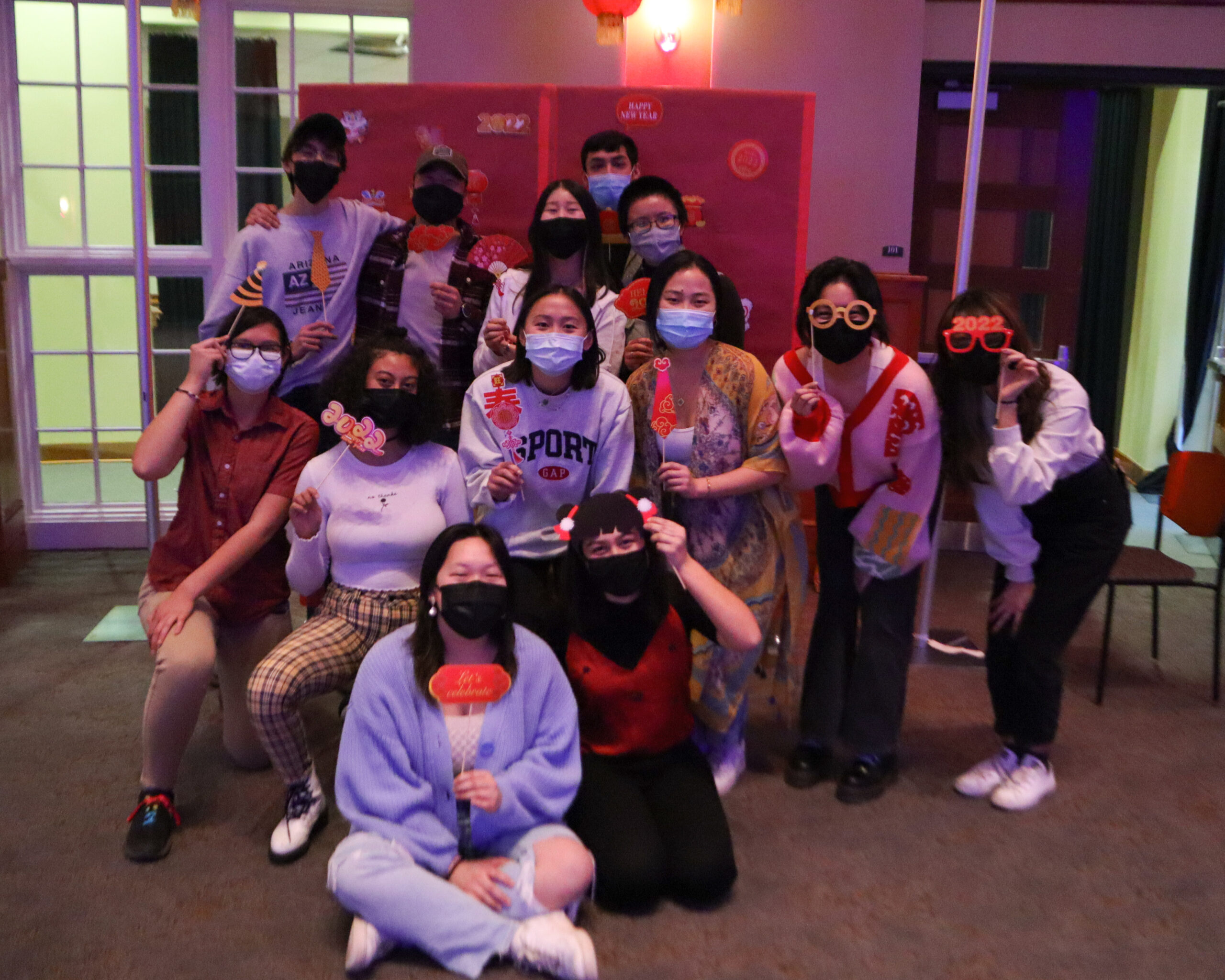
Following the presentations, I worked with each organization and its members to collect group and individual donations that document the founding of each organization and its first year of activities. These materials include proposals to create the organization, constitutions and bylaws, meeting agendas and minutes, fiscal reports, logos, event flyers, photos, informational PowerPoints, individual State Legislature testimonies, and transcripts of the oral interviews. The collection comprises five series: (1) Athens Asian American Alliance, (2) AAPI-LEAD, (3) AAPI Student Union, (4) Co-Hosted Events (Homecoming Parade, Lunar New Year, AAPI Heritage Week), and (5) written testimonies in opposition to Ohio House Bill 322 and 327 and in support of Ohio Senate Bill 214. These materials will be digitally preserved in the Mahn Center and available for public access. The collection is open for research, contact Manuscripts Archivist Greta Suiter and complete a research request form for access.
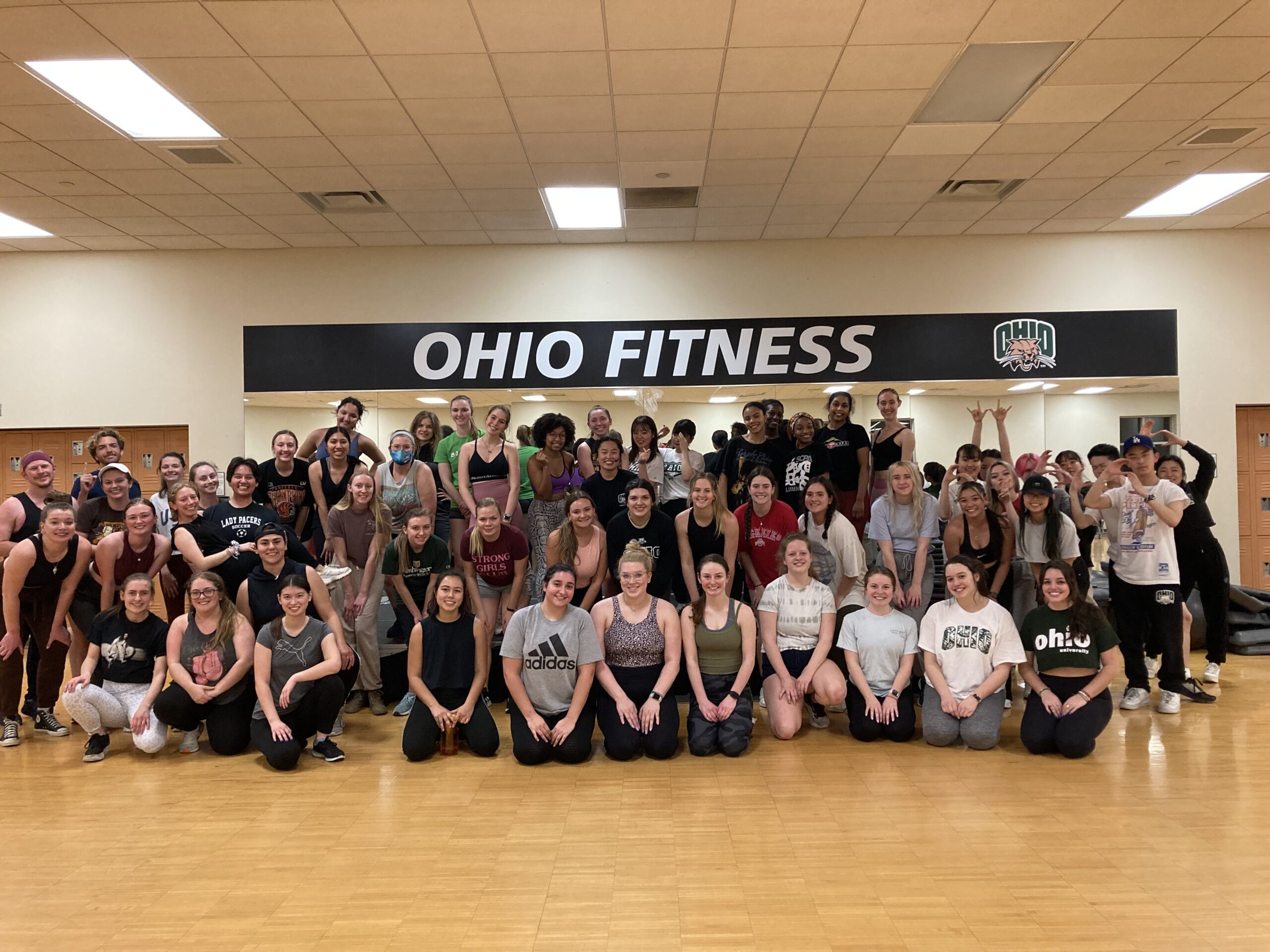
One exciting aspect of this collection, for me, is how much variety there is among the materials. This offers a plethora of opportunities for people to learn more about the AAPI presence in Athens through visual materials, written materials, presentations, and interviews. It has also been incredibly satisfying to watch the collection grow over time. We started with founding documents for each organization and continued to build momentum as more people heard about the project and wanted to donate materials. For example, once I shared the project with my friends in the AAPI Student Union and donated my written testimony to support Ohio Senate Bill 214, which would mandate the teaching of AAPI history in public schools, many of the students who had participated in the letter writing campaign were eager to donate their testimony as well. Students with an interest in public relations and communications were happy to donate photos they had taken throughout the semester, and students with journalism backgrounds eagerly donated student-written pieces about the AAPI groups. So, although this project is mainly a historical and archival internship, students from all different majors could participate as donors and contribute in their own way to the story we are telling about the AAPI community here in Athens.
Learning the True Meaning of Diversity
My favorite part throughout this entire process was conducting oral interviews with the founders of each organization. Throughout my thesis research project, I studied the diversity among Asian Americans and Pacific Islanders. AAPIs include East Asians, Southeast Asians, South Asians, Pacific Islanders, and Native Hawaiians. Even among these ethnic groups, there is even more diversity among first-generation, second- and third-generation, refugees, undocumented people, and adoptees.
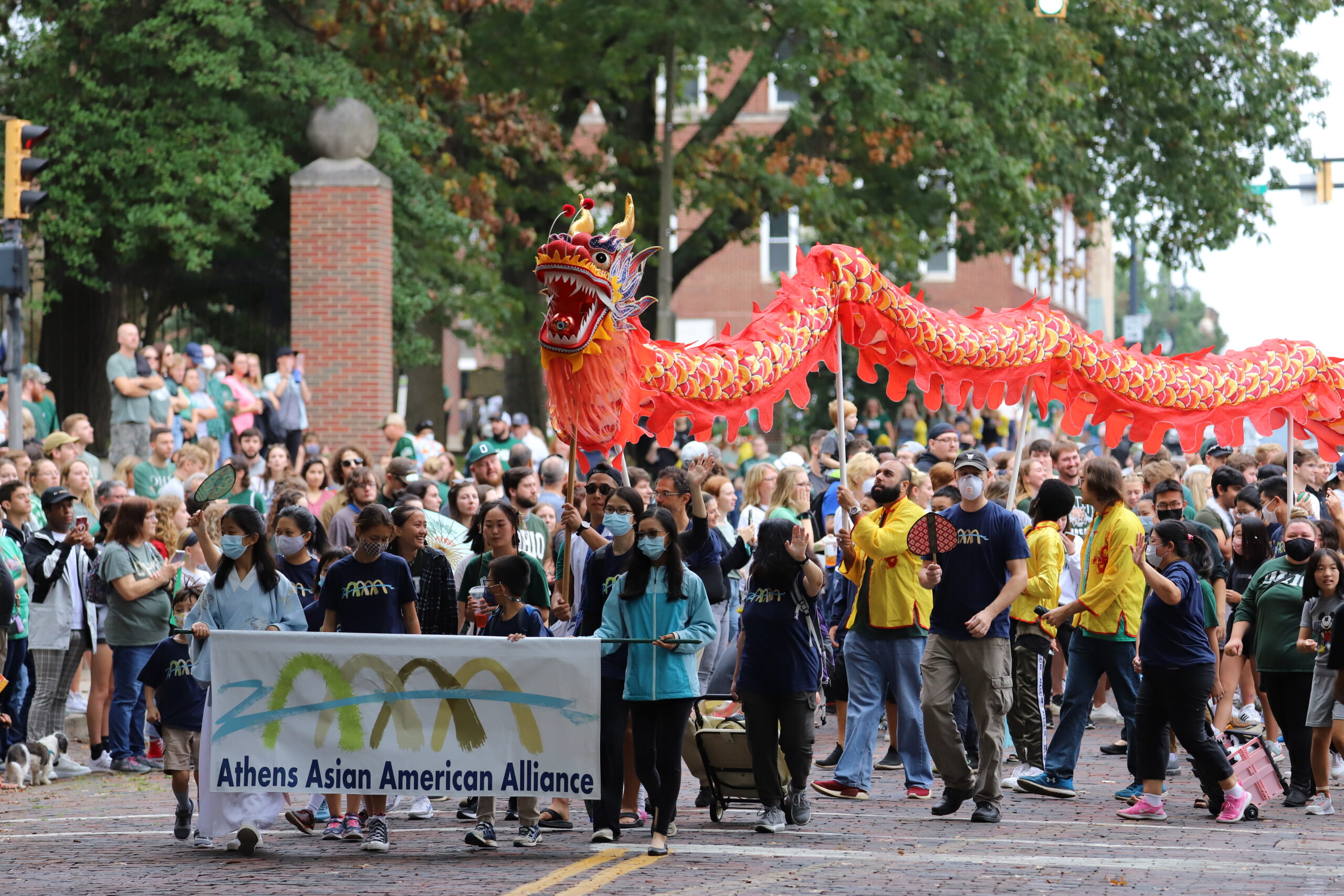
During the interview process, I listened to individuals’ stories about the AAPI experience, which showed me concrete examples of the diversity among our racial group in the local community—it was like seeing my research come to life. In some ways, I saw my own Chinese American story reflected in their experiences, and in other ways, I learned more about the AAPI experience that I was not familiar with. My interview with Dr. Ji-Yeung Jang, founder of AAPI-LEAD, best illustrates my own excitement about hearing other people’s stories:
“Another thing that comes to my mind is how much I appreciate hearing other AAPI community stories. Maybe that’s the story that I know so well. Or maybe that’s the story that I’m not familiar with. But regardless, I found the really great value and I didn’t realize until I was in the room hearing the stories of someone else telling my story from their experiences. Or someone else’s story that I cannot identify with. And that’s kind of an “ah-ha” moment because I didn’t realize it.”
From this process I have learned the importance of elevating the personal stories of individuals in history because then we can learn about each unique experience. As an Asian American, it was also incredibly moving to see how these three organizations have fostered a community where we can learn about one another and feel accepted regardless of our backgrounds. In the words of Katie Hall, treasurer of the AAPI Student Union, “Learning that I wasn’t alone and learning how I can overcome those fears and those obstacles with the help of other AAPI students has been amazing and immensely impactful.”
My Bobcat Legacy
In April, I presented my project at the Ohio University Undergraduate History Conference and the Student Expo, and I was overwhelmed by the praise I received from faculty, staff, students, community members, administrators, and Asians and non-Asians alike. Many people were excited to see Alden Library’s commitment to celebrating diverse voices. In addition, many people from the AAPI community thanked me for the work I had done to uplift our stories.
When I embarked on this project, I was eager to develop professionally as a historian and to connect the project to my research. As I wrap up this project, I have noticed that I have grown personally too. I have become a leader of the Asian American and Pacific Islander community on campus and shown others how we make actionable change here in Athens to support historically minoritized groups. I’ve also found a new community here in Athens that I did not have in my first three years at Ohio University. This project has instilled a sense of pride in me—I’m proud to be an Asian American woman in Athens and I am proud to share our stories.
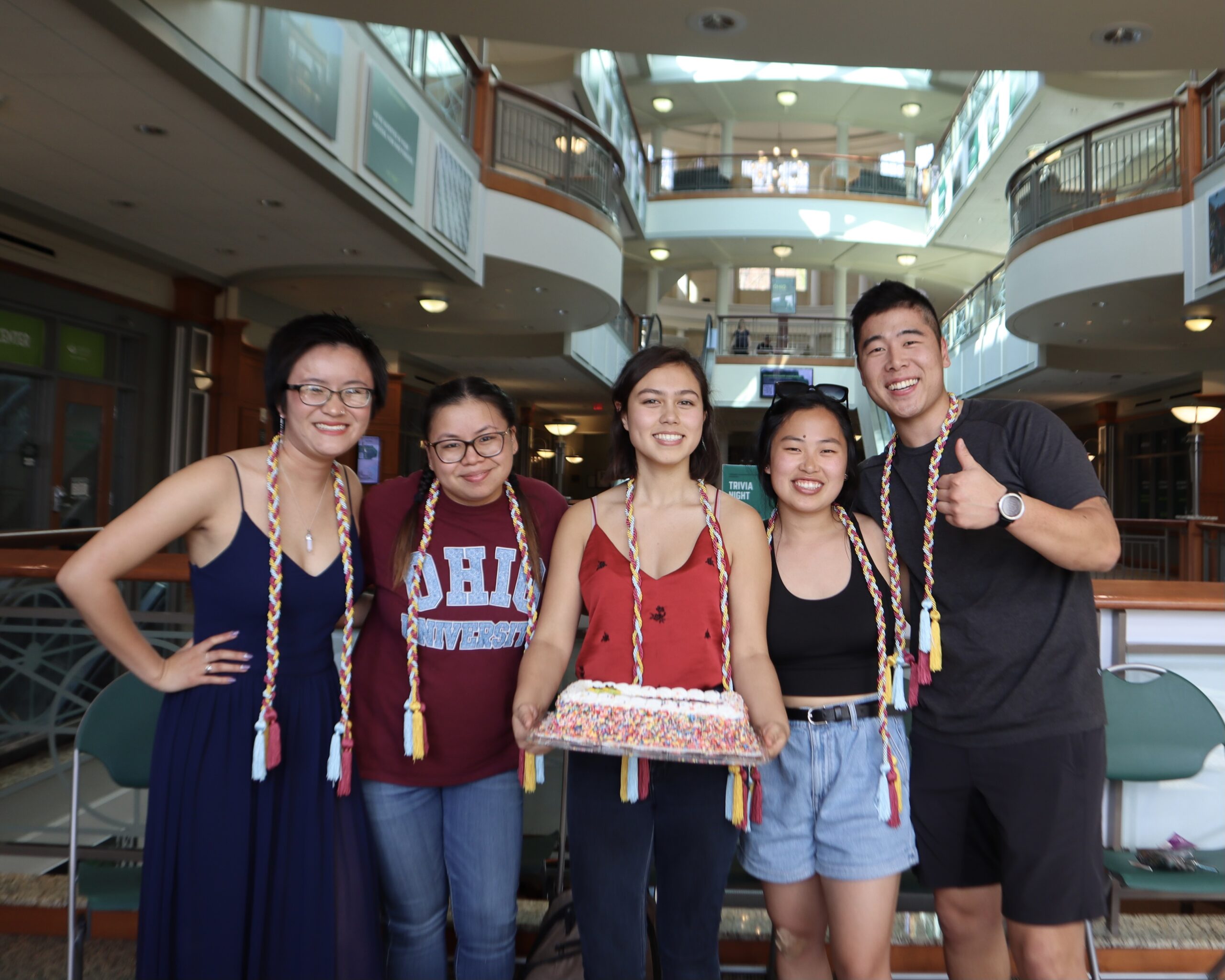
As I wrap up this 150-hour internship, I am amazed by what I accomplished in one semester. To be honest, oftentimes I am still in shock by how many donations I collected and oral interviews I conducted. This would not have been possible without the support of my internship advisors Greta, Bill, Miriam, Laura, and Dr. Clouse, my thesis advisor Dr. Jellison, and the three AAPI organizations. On April 30th, 2022, I will graduate from Ohio University. Because of this internship, I feel more than prepared to enter the world and workforce as an Asian American leader, archivist, and historian. Any student can read about the archival process in a textbook, but very few students have the opportunity to build an archival collection at their institution and graduate feeling like an expert in the field. This experiential learning opportunity is one I will remember forever. This archival collection is one of my legacies here at Ohio University, and I am excited to see how the collection will continue to grow and continue to amplify the history of AAPIs in Athens long after I leave.
1 Alexis J. Karolin & Roger C. Aden (2021) Identifying home: a narrative of Japanese American internment, Communication Quarterly, 69:2, 192-213, DOI: 10.1080/01463373.2021.1913427 and Alexis J. Karolin (2022) “A painter, A very poor talker”: Affective experiences of trauma and coping mechanisms in Hisako Hibi’s internment artwork, Atlantic Journal of Communication, DOI: 10.1080/15456870.2022.2081328